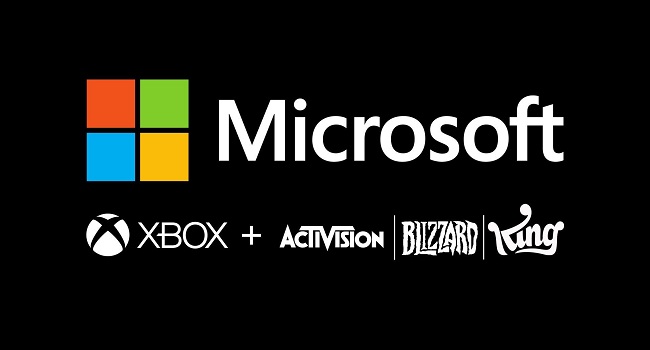
Britain on Wednesday blocked Microsoft’s $69-billion takeover of US video game giant Activision Blizzard, arguing it would harm competition in cloud gaming and leaving the blockbuster deal in peril.
The UK’s Competition and Markets Authority prevented the deal “over concerns… (it) would alter the future of the fast-growing cloud gaming market, leading to reduced innovation and less choice for UK gamers over the years to come”, the CMA said in a final decision on its long-running probe.
Microsoft replied it would appeal the verdict over its vast takeover, which has yet to win regulatory approvals in Europe or the United States.
The Xbox-owner launched in 2022 its bid to create the world’s third biggest gaming company by revenue with the takeover of Activision, owner of hit games “Candy Crush” and “Call Of Duty”, triggering antitrust concerns worldwide.
The CMA added Wednesday that Microsoft’s proposed remedies over cloud gaming contained “significant shortcomings” and would require further regulatory oversight instead of allowing the market to decide.
“Preventing the merger would effectively allow market forces to continue to operate and shape the development of cloud gaming without this regulatory intervention,” it added in the statement.
Martin Coleman, chair of the independent panel of experts conducting the CMA probe, said the landmark deal would have handed Microsoft even more power over rivals.
“Microsoft already enjoys a powerful position and head start over other competitors in cloud gaming and this deal would strengthen that advantage, giving it the ability to undermine new and innovative competitors,” Coleman said.
“Microsoft engaged constructively with us to try to address these issues and we are grateful for that, but their proposals were not effective to remedy our concerns and would have replaced competition with ineffective regulation in a new and dynamic market.”
The announcement comes one month after the CMA narrowed the scope of its probe to cloud gaming, after concluding that Microsoft’s deal would not damage competition in relation to console gaming.
Yet it argued on Wednesday that the video games market needed competition to thrive.
“Cloud gaming needs a free, competitive market to drive innovation and choice,” added Coleman.
“That is best achieved by allowing the current competitive dynamics in cloud gaming to continue to do their job.”
Follow our socials Whatsapp, Facebook, Instagram, Twitter, and Google News.








